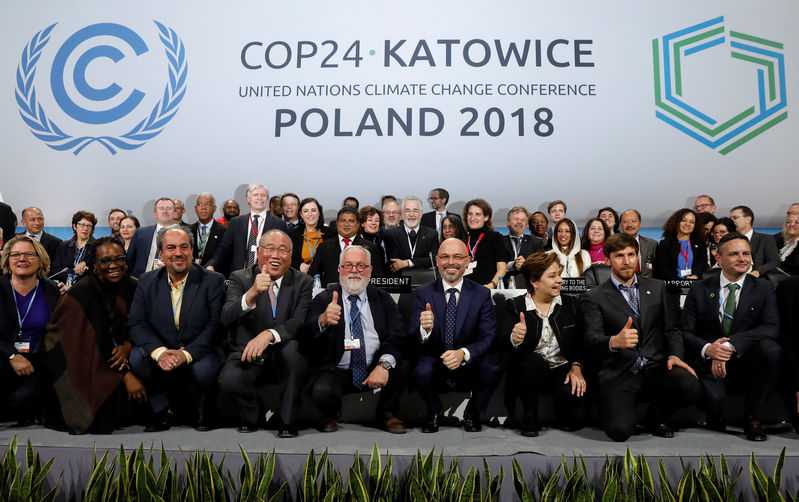Global climate talks end with pact considered weak
17 December, 2018

Nearly 200 countries overcame political divisions late Saturday to agree on rules for implementing a landmark global climate deal, but critics say it is not ambitious enough to prevent the dangerous effects of global warming.
After two weeks of talks in Katowice, nations finally reached consensus on a more detailed framework for the 2015 Paris Agreement, which aims to limit a rise in average world temperatures to “well below” 2 C above pre-industrial levels.
“It is not easy to find agreement on a deal so specific and technical. Through this package you have made a thousand little steps forward together. You can feel proud,” Polish president of the talks Michal Kurtyka told delegates.
After he struck the gavel to signal agreement had been reached, ministers joined him on the stage, hugging and laughing in signs of relief after the talks.
Before the talks started, many expected the deal would not be as robust as needed. The unity that underpinned the Paris talks has fragmented, and U.S. President Donald Trump intends to pull his country out of the pact.
At the 11th hour, ministers managed to break a deadlock between Brazil and other countries over the accounting rules for the monitoring of carbon credits, deferring the bulk of that discussion to next year.
Still, ministers managed to bridge a series of divides to produce a 156-page rule book — which is broken down into themes such as how countries will report and monitor their national pledges to curb greenhouse gas emissions and update their emissions plans. Not everyone is happy with everything, but the process is still on track and it is something to build on, several ministers said.
“While some rule book elements still need to be fleshed out, it is a foundation for strengthening the Paris Agreement and could help facilitate U.S. re-entry into the Paris Agreement by a future presidential administration,” said Alden Meyer of the Union of Concerned Scientists.
Some countries and green groups criticized the outcome for failing to urge increased ambitions on emissions cuts sufficiently to curb rising temperatures. Poorer nations vulnerable to climate change also wanted more clarity on how an already agreed $100 billion a year of climate finance by 2020 will be provided and on efforts to build on that amount further from the end of the decade.
A statement by U.N. Secretary General Antonio Guterres, who left the talks on Thursday, stressed the need for more work.
“From now on, my five priorities will be: ambition, ambition, ambition, ambition and ambition,” it said. “And ambition must guide all member states as they prepare their [emissions cut plans] for 2020 to reverse the present trend in which climate change is still running faster than us.”
TAG(s):
